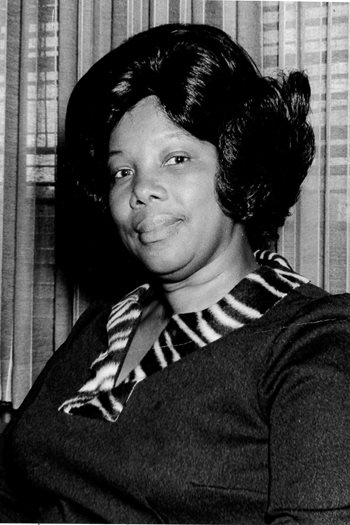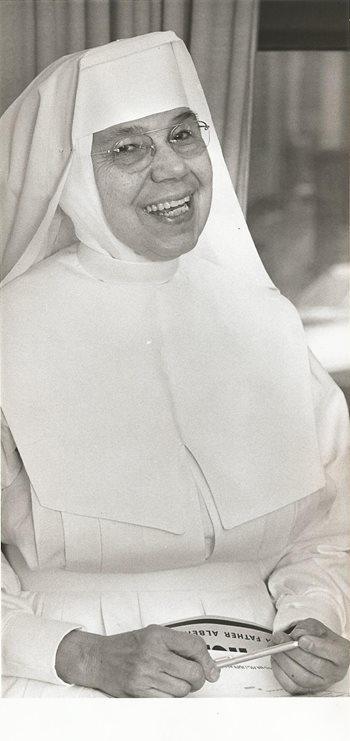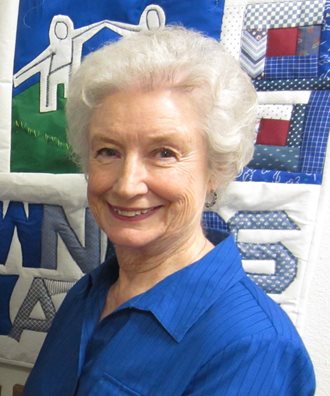During Women’s History Month, NeighborWorks America looks back on its own history, which is rooted in the work of Dorothy Mae Richardson and her neighbors. Working together, they saved their Pittsburgh neighborhood, convincing landlords, bankers, businesses and government officials to  engage – and to halt – years of neglect and disinvestment. Friends have described Richardson as a "strong and fearless leader" who, without any training, compelled everyone to come to the table to work together.
engage – and to halt – years of neglect and disinvestment. Friends have described Richardson as a "strong and fearless leader" who, without any training, compelled everyone to come to the table to work together.
"Dorothy Mae Richardson and her neighbors sparked a movement in the North Side of Pittsburgh that led to the formation of the national network of community development organizations that we support to this day," shares Alex Sasayama, NeighborWorks’ senior manager of Community Building and Engagement.
Richardson’s group formed Citizens Against Slum Housing (CASH) and worked to convince landlords to maintain their properties. They also worked to bring in new public housing, and they advocated for homeownership. Their work included a $1 million revolving loan fund for homeownership and home repairs and a public-private-community partnership with 16 local banks. CASH led to Neighborhood Housing Services of Pittsburgh, and their work became a model that was replicated across the country by the Urban Reinvestment Task Force, the precursor to NeighborWorks America.
Richardson’s work as a resident leader also became a model – a model NeighborWorks supports through training, including the Community Leadership Institute. NeighborWorks presents awards each year to residents who reflect Richardson’s leadership, tenacity and community spirit. The award is named in Richardson’s honor and shows that her legacy continues to endure.
Throughout the NeighborWorks network, women have played and continue to play a historic role in their communities.
Famicos in Cleveland, Ohio
Famicos got its start in 1965 with Sister Henrietta Gorris, a nun, registered nurse and retired hospital administrator, who lived in the neighborhood she served. It began as a volunteer charity in the Hough neighborhood, where racial tensions and impoverished conditions gave way to riots and devastation in 1966.

Gorris "started with the conviction that every person deserves a safe and clean place to live," says Tara Mowery, director of marketing at Famicos. "That principle still guides everything we do. She started by providing food, shelter and clothing. We still provide those things to folks in need more than 50 years later."
The descendants of the family she built the first house for still live in that original house. Relatives of Gorris serve on Famicos’ board and volunteer to help in Famicos projects.
She didn’t just talk about helping, Mowery shares. "She immersed herself in the neighborhood. She was also adamant about neighborhood change coming from within. She very much believed in a hand up, not a hand out."
Pensacola Habitat for Humanity in Pensacola, Florida
Wilhelmina McNamara is the woman who brought Habitat for Humanity to Pensacola after learning how many homes in the city fell into the "substandard" category. But she didn’t do it alone. One of her first, "pioneer" volunteers was Betty Salter, who answered McNamara’s call for help in the Pensacola News Journal.
She became a member of Pensacola Habitat for Humanity's first board of directors in 1984 and has worked with the organization ever since, including as executive director, a post she held for more than 20 years without ever taking a paycheck. She was responsible for securing one of the first neighborhood stabilization program grants and developing more than 20 homes in two years.
"Betty Salter is, and always will be, the heart and soul of Pensacola Habitat," says Sam Young,

NeighborWorks will continue to highlight some of the organizations founded by women during Women’s History Month. Do you have an organization to recommend? Contact [email protected]

